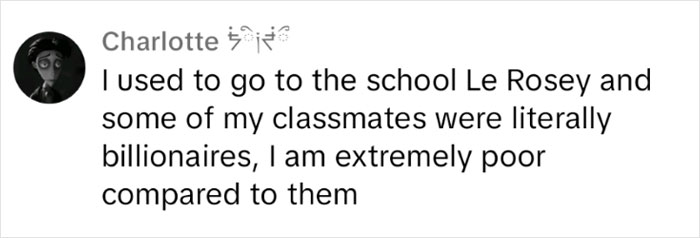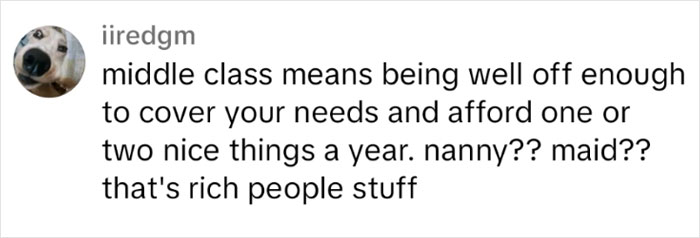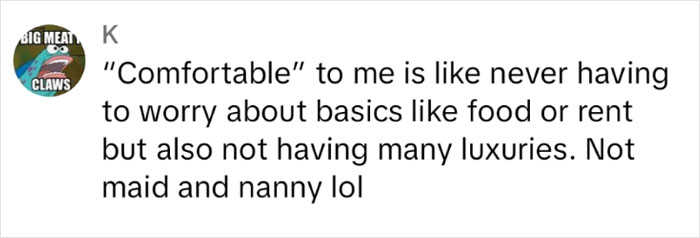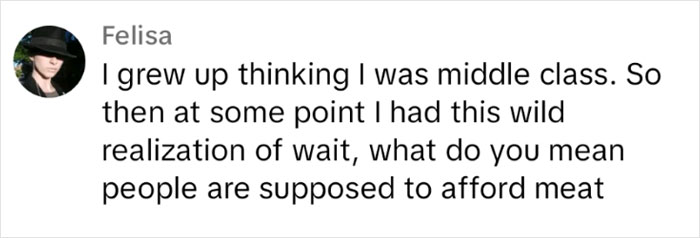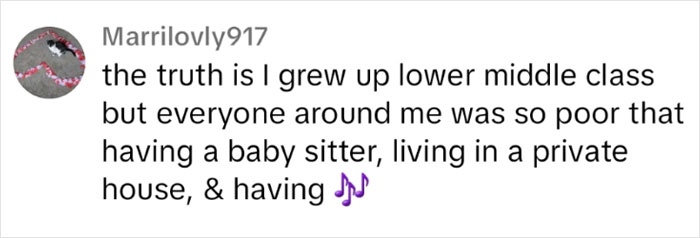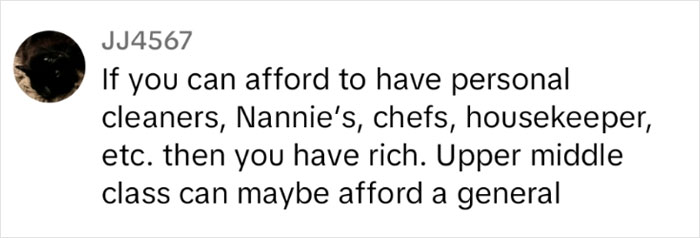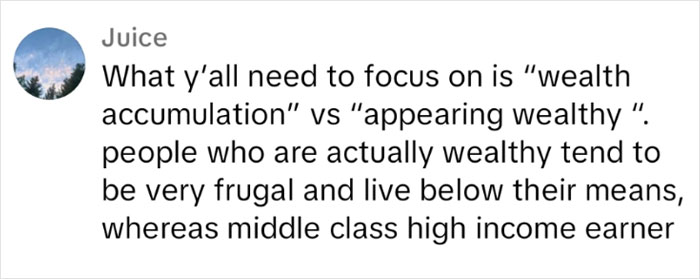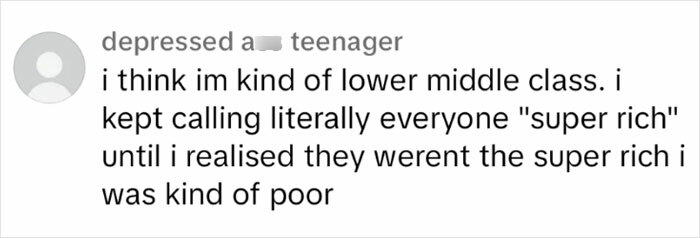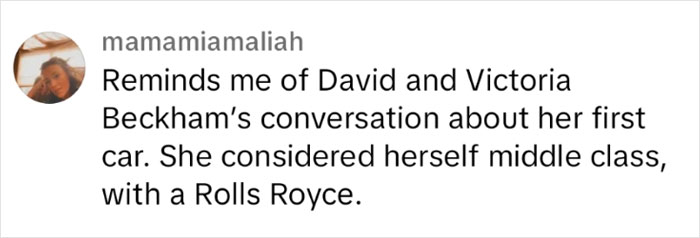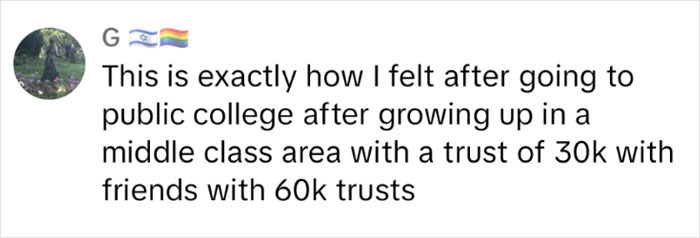In a time when people are doubting whether or not the rich and poor can understand each other, TikToker Geneviève (@gen_laforce) released a video, listing all the things she’s learned since she started dating her girlfriend, who comes from a very different social background than hers.
In the two-minute clip, Geneviève isn’t throwing punches at anyone. Rather, she’s explaining how our perception of ourselves and the world around us is affected by the wealth we’ve had growing up.
It perfectly underscores the importance of open dialogue in bridging social divides.
This TikToker’s heartfelt video about about her girlfriend’s financial status is going viral

“Here are some culture shocks that I had as someone who grew up poor who’s now living with someone who grew up with money.”
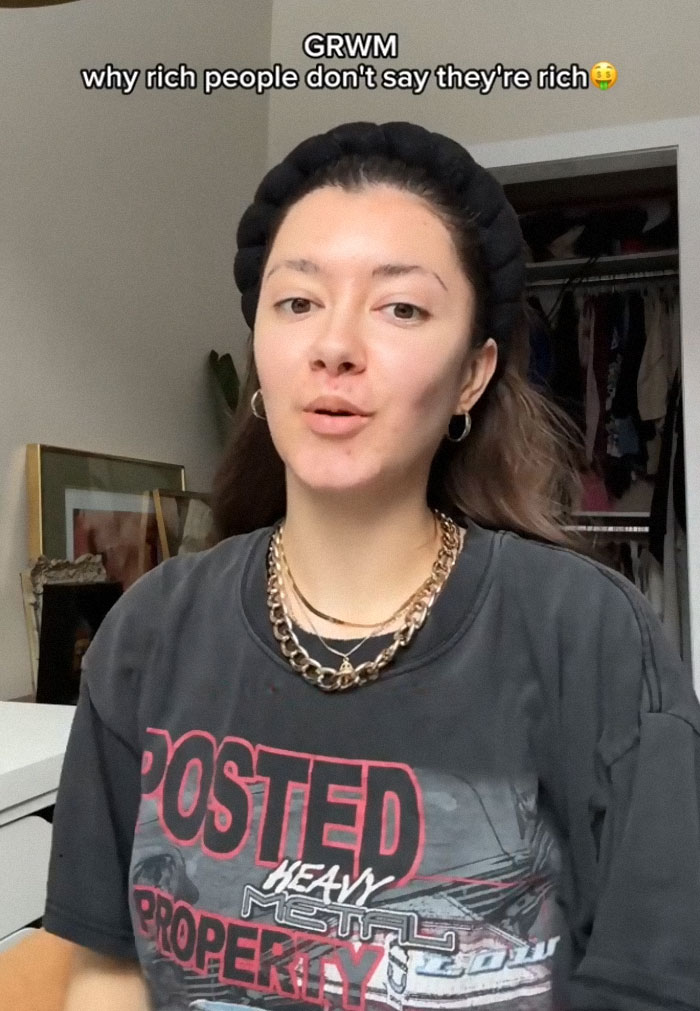
“Firstly, is the fact that rich people don’t consider themselves rich. Because they surround themselves with people who are much richer than them.
When I first met my girlfriend, she was like, ‘Oh, yeah, like I grew up middle class.’ And I was like, ‘Well, I mean, I grew up poor with a single mom who would camouflage our money and food struggles by orchestrating ‘picnic night.”‘
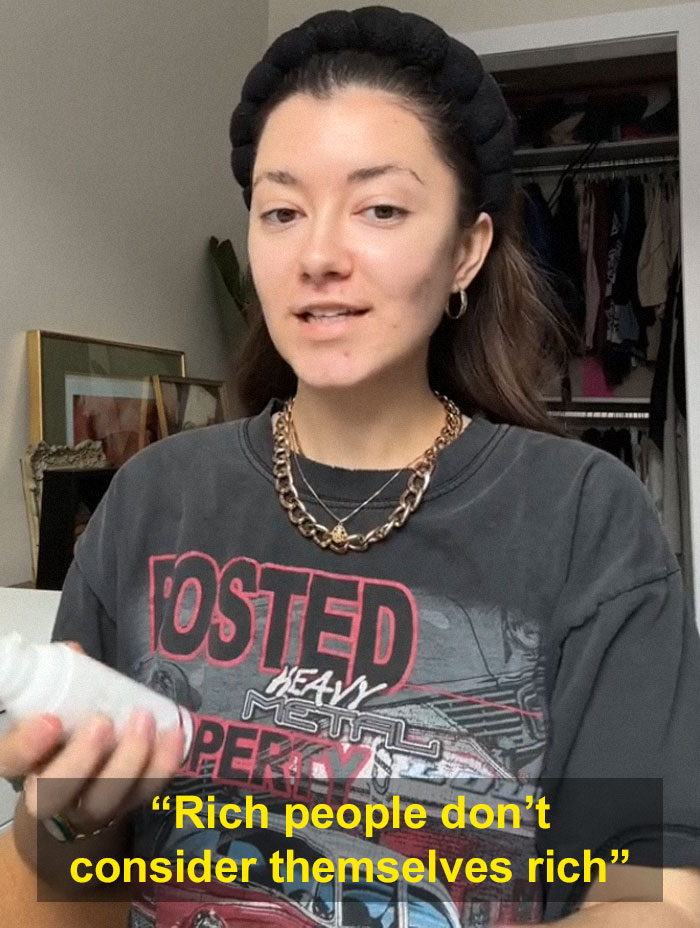
“Basically, she’d make green beans and butter, and we were allowed to eat on the living room floor. I was made hyper-aware of our money struggles, and the fact that my father didn’t pay child support.
But then before starting high school, my mother met my stepfather. And then we became pretty much middle class.”
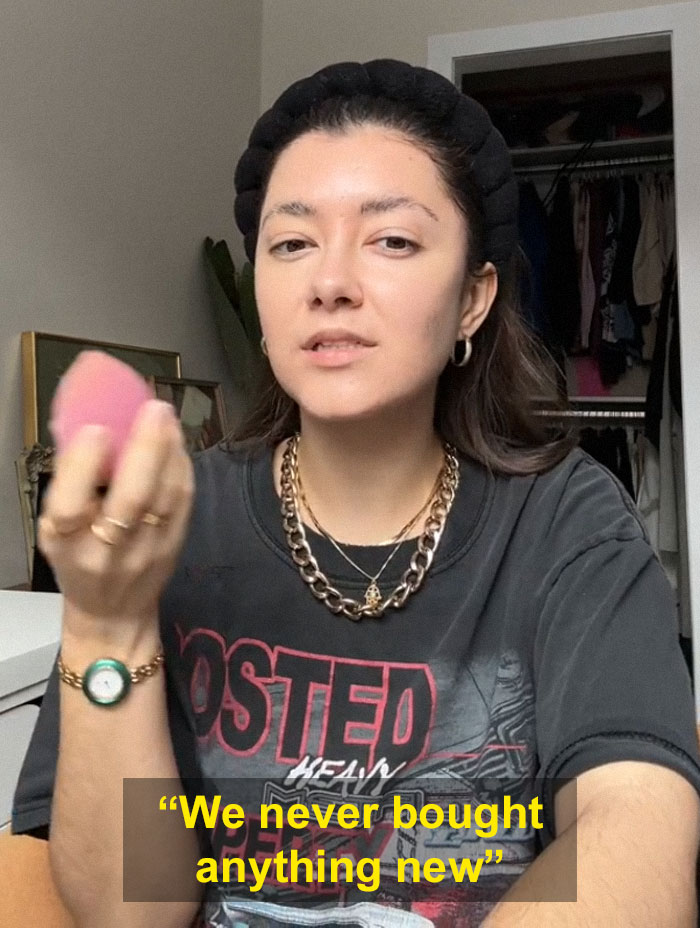
“But even though we technically weren’t poor anymore, we still acted poor because we were hyper money-aware.
We never bought anything new. We had an old used family car. I had to pay for my own school. I started working at 13. But within my very low-income village, I was still considered pretty well-off.”
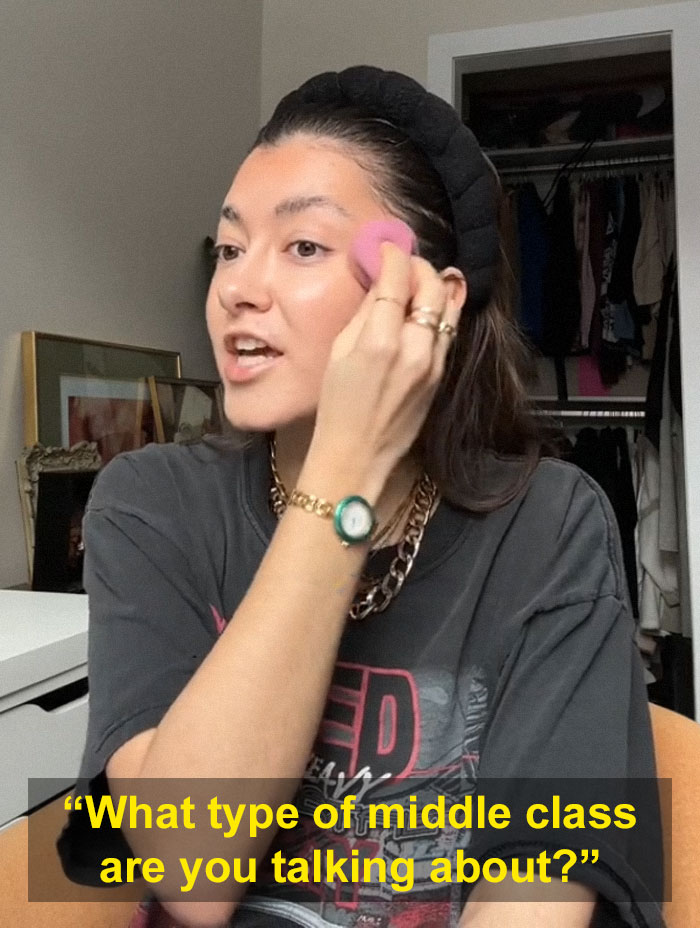
“My girlfriend was like, ‘Oh, I mean, like, we lived in a pretty big house. We had a live-in nanny, a maid. Each of my five family members had their own car. We’d go on multiple family vacations a year.
Been to Hawaii so many times, I can’t even recall. Private education, paid college, paid apartment, paid car and never had to work until after college.’ And the list goes on. And I remember being like, ‘What type of middle class are you talking about?’”
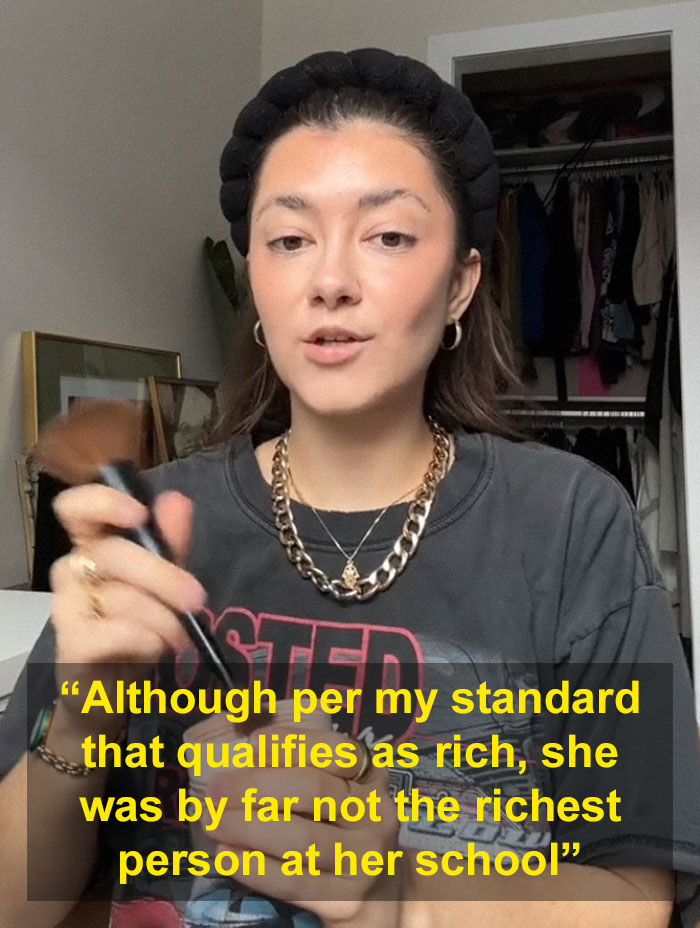
“It’s amazing that she was able to live this life, but it made me realize that everything is relative. Because although per my standard that qualifies as rich, she was by far not the richest person at her school, in her neighborhood, in her group of friends.
So to her, she was actually middle class because she had never really come into contact with people who were properly poor, or even properly middle class. She had only ever really been exposed to people within her own community who were well-off, until she went to college.”
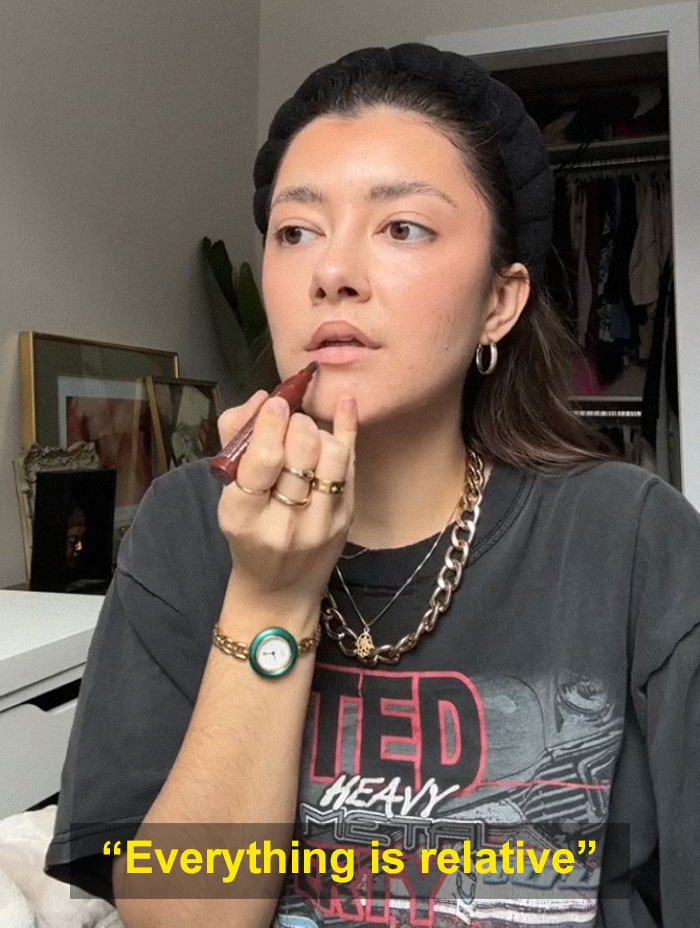
“Thankfully, my girlfriend was raised with good values by great people and she has an amazing heart. But she told me that that was the first time that she realized that she had been living in a bubble.
Because had she grown up in my village with that lifestyle, she would have been considered even more than rich.
I think that that’s why a lot of rich people tend to say ‘we’re comfortable’ not ‘we’re rich.’ Because they don’t think that they are since they know people who, per their standards, are ‘actually rich.’ Basically, everything is relative.”
Geneviève’s video has racked up over 10.5 million views
@gen_laforce do y’all have any rich people experiences? i’m curious✨ #richvspoor #cultureshock #grwm #relatable ♬ original sound – Geneviève✨
According to the Pew Research Center, the American middle class has been shrinking throughout the last five decades as people have entered either the upper or lower income brackets.
The latest data from 2021 shows the share of the population in the middle class currently hovers around 50% and has been consistently getting smaller since a peak of 61% in 1971.
Pew defines middle class as those earning between two-thirds and twice the median American household income, which in 2021 was $70,784, according to numbers from the United States Census Bureau, meaning that American households earning as little as $47,189 and up to $141,568 are technically in the middle class.
However, it’s worth noting that other factors, such as location and family, can change what the picture looks like for you. For instance, while a middle-class household in the metro Detroit area earns between $45K and $134K, their counterparts in the District of Columbia rake in $74K to $221K.
What’s cool is that Geneviève and her girlfriend are talking about these things. A 2023 survey found that 64% of couples admit to being “financially incompatible” with their partners, with different philosophies about spending, saving, and investing their money but as much as 61% of Gen Z’ers and 60% of Millennials have withheld at least one piece of key personal financial information from their partners.
And has received plenty of different reactions, with some people sharing their own personal experiences
